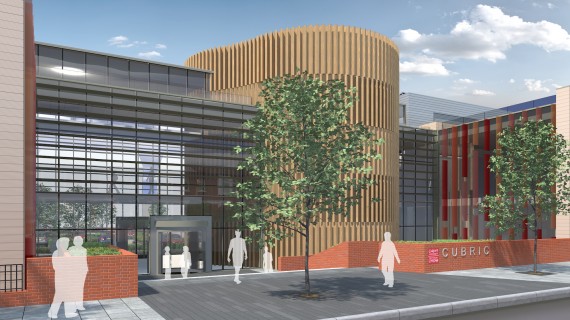The MRI scanner is referred to as a ‘7T’ system, as the magnet inside is 7 Tesla (Tesla = unit of magnetic field strength). It will help researchers at Cardiff University Brain Research Imaging Centre (CUBRIC) study a range of neurodegenerative and psychiatric disorders including dementia, schizophrenia and depression.
The 7T weighs in at 40 tonnes and is the third of its kind in the UK.
Supplied by Siemens Healthcare, it will aid the early detection of disease and the development and monitoring of new therapies.
Professor Derek Jones, Director of CUBRIC, said: “The arrival of the 7T scanner is the next big step in the evolution of CUBRIC. It will enhance our capability for high quality research, helping us understand mechanisms of disorders such as dementia, autism and learning disabilities. Working with NHS Wales and industry helps us bring advanced technology closer to patients.”
The secret of 7T scanning technology lies in the strength of its giant magnet, which helps create more finely detailed images of the human brain, and can reduce scanning times for patients. The 7T magnet is around 7 times stronger than magnets used to pick up cars in junk yards, producing very high resolution images.
MRI – or Magnetic Resonance Imaging – is a technique that shows internal body structures. It can distinguish soft tissues, and is often used to image the brain, muscles, and heart. A non-invasive technique, it is now the most used imaging method in neuroscience.
The delivery of the new scanner marks another milestone in the completion of the new CUBRIC research facility on the Cardiff Innovation Campus at Maindy Road. It is due to open in Spring 2016.

